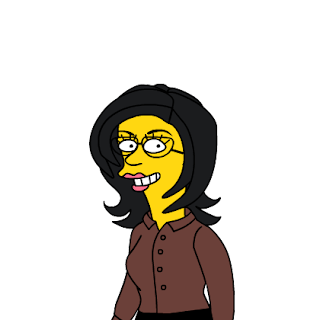So, I finally finished the book, "Lies My Teacher Told Me" by James Loewen. Overall, I found the book extremely interesting. Chapters 1 and 2 discuss the topics of hero-making and Christopher Columbus. I found both to be enlightening, and agree with Loewen's assertion that history books try to create heroes out of historical figures -- something that is detrimental to teaching children accurate history. I think it's interesting to note that the Bible is not afraid to show the "dark side" of it's historical figures, and does a superb job of telling the story of God's redemption and plan for the church, despite human failings.
The chapter on Christopher Columbus was especially enlightening. I love how Loewen annually asks his college students, "Who were the first settlers on our continent?" and they routinely get the question wrong. (Remember, the first settlers were actually the native Americans). He also points out the strong possibilities of visits to America by both Africans and Phoenicians, long before even the Vikings who proceeded Columbus. I found it interesting to note his identification of the fact that most people did, indeed, know that the earth was round, that the "discovery" of the Americas was a perspective unique to Europeans, and that Columbus was also at the root of a number of serious human rights violations.
The chapters on the treatment of the natives, slavery and racism were also fascinating. The Civil War (which was really about slavery, not preserving the Union -- ha! ha! to my 7th grade history teacher. You were totally totally wrong!!!) and Reconstruction were presented in a totally different light than my text books growing up, and most that I have perused through as a home schooler. I found especially interesting, the chapter on Abraham Lincoln and John Brown. It was inspiring to read about Lincoln's personal struggle with racism, and that he made the choice to do what was right despite his inner struggle. John Brown was painted as a fascinating individual, who, quite possibly, might be the most interesting "civilian" in American history -- yet painted as a crazy man by textbooks.
By the middle of the book, though, his bias started to show through. The main issue I found was that he insists that America is not a land of equal opportunity -- well, historically that's obvious. However, he tends to blame the system more than the individuals. Any system that supports racism and slavery is a product of the individuals that make up that system. I think personal responsibility makes up a big part of why someone "makes it" or not in this country today. I see this on a daily basis, when my daughters get out of bed, and do there work despite their disabilities. Then I drive downtown and see men begging for money on the road side because they "have no legs and can't work." Seriously, I want to stop the car and lecture those people. The missing legs ain't the reason they're not working!
Anyway, he goes to blaming "the system" far too quickly. You can't deny that people here have overcome tremendous odds, something that just can't happen in many places in the world, no matter how diligent or tenacious someone is. While I do believe racism is still an issue in this country, I think that, like disability rights, it's gone beyond the system and it's an issue of changing people's thoughts and hearts. People do move from class to class in this country -- I think of my own family where my grandfather and grandmother were not college educated people, yet raised both their children to be college-educated professionals and now, collectively, all 7 of their grandchildren are as well. I think the vast majority of the reason that people don't "make it" here has less to do with systematic injustice and more to do with personal habits, laziness and priorities, as well as thought patterns and practices that take generations to change.
However, he points out that textbooks try to portray America as a place where everyone is middle class, which is, of course, not true. But to that I would also say that while I have been personally involved with some children who are very poor and live in situations that are far from healthy, I can walk the streets of my city and not have 2 and 3 year-olds come up begging. No, everyone is not middle class. But, there is definitely more here for the impoverished than elsewhere in the world.
In addition to that, is the "American dream" that everybody should be rich, or is it that everybody should have the opportunity to provide for their family in a safe and healthy way?
At the end of the book, he had an interesting section on the use of history textbooks for the purpose of "socialization" of our students. I found this fascinating. The books are written to create nice little patriotic students who can list dates, recite all the great things America has done (and exclude the not-so-nice stuff like our involvement in the Phillipines and the Mexican-American War or some of our involvement in Haiti not long after the American Revolution). They also like to down play slavery, and bias against women and racism to produce a nice "Godly" nation that we will all love and serve. The Iraq War, especially, is ill treated -- much in the manner of the actual war itself!
After reading the book, I'm even more thankful that God has led our family to home school. I have never liked what I've seen in secular history textbooks, and most that I've seen published by Christian publishing companies err in the opposite direction. For now, we read history from "living books" (historical fiction, biographies, topical books etc) and plan to use primary sources for the upper grades. What could be a subject that prompts great thinking has really been reduced to various types of indoctrination.
"Lies My Teacher Told Me" -- I give it two thumbs up!
Wednesday, March 19, 2008
Lies My Teacher Told Me
Subscribe to:
Post Comments (Atom)






1 comment:
Hi, not that this has anything to do with your post, but my son has arthrogryposis and so do I. :) Just wanted to say hello.
Kindy
Post a Comment